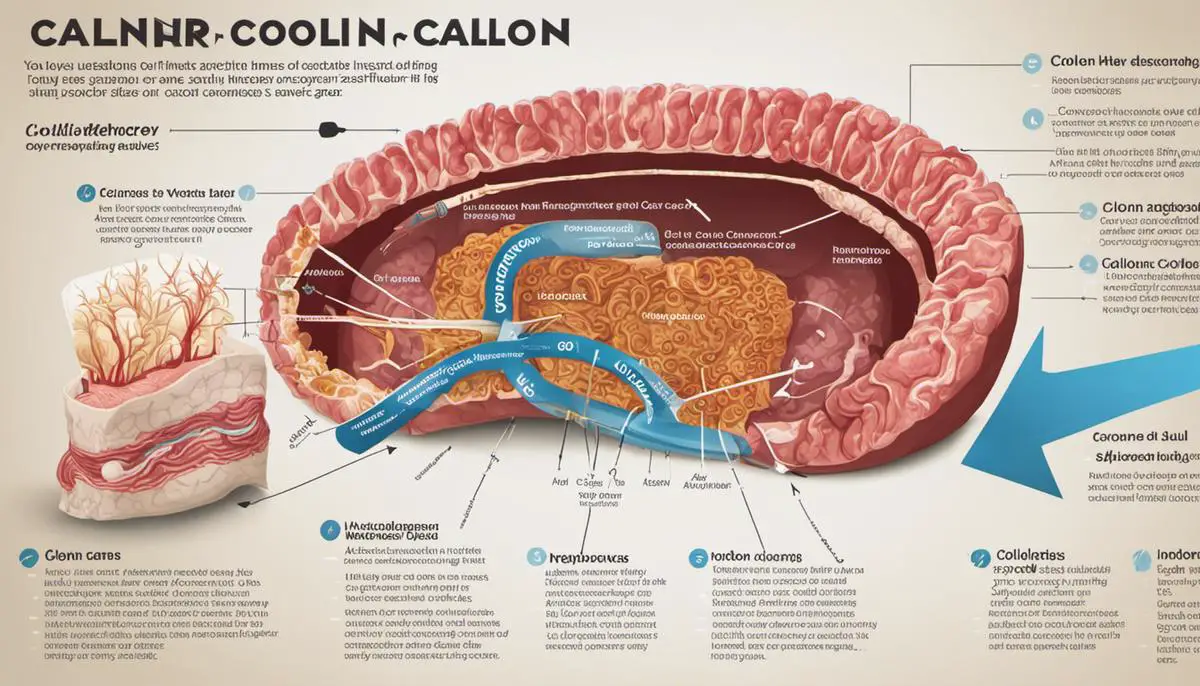Colon cancer, a significant health concern affecting thousands worldwide, often begins with subtle changes that might go unnoticed in the early stages. This complex disease, impacting the large intestine or colon, has a significant incidence rate, yet it can potentially be prevented through alertness to symptoms and early detection strategies. One of the common early signs is a significant change in bowel habits. This essay focuses on understanding colon cancer, identifying its common symptoms with an emphasis on bowel changes, the role of medical examinations and diagnostic tests, and strategies for prevention and treatment.
Understanding Colon Cancer
Understanding Colon Cancer and Bowel Changes
Colon cancer, also known as colorectal cancer, is a type of malignancy that begins in the large intestine which is marked with the development of growths or polyps. These polyps may over time transform into cancerous cells if they aren’t detected and removed early on. This cancer primarily affects the colon (the longest part of the large intestine), and its close neighbor, the rectum.
A Close Look at Bowel Changes in Colon Cancer
When it comes to colon cancer, several bowel changes can occur and these changes can greatly vary. A frequent change is a shift between diarrhea and constipation, or alternating instances of both. This pattern, if it persists beyond a few days, might be a consequence of a tumor affecting the bowel’s usual function of moving the stool.
A symptom often related to bowel changes is the sensation of an inability to completely evacuate the stool, even after a bowel movement. This sensation, commonly referred to as tenesmus, can persist even after the bowel has been presumed emptied.
Significant variations in the stool’s size or shape serve as another typical symptom. Stools may become thin, often described as pencil-like or may alter in shape. This happens as a result of a tumor constricting the colon passage.
In addition to these, other changes like the presence of bright red or dark-colored stool- an indication of blood- can also be noted. This blood may either be there due to the growth of the tumor or from complications such as tears in the colon lining triggered by passing stool.
It’s crucial to be aware that the presence of these symptoms doesn’t necessarily stipulate colon cancer. Conditions like inflammatory bowel disease, hemorrhoids, or infections can result in similar symptoms. However, prolonged or repeated presence of these symptoms should prompt immediate medical attention to exclude the possibility of colon cancer and, if necessary, begin early treatment.
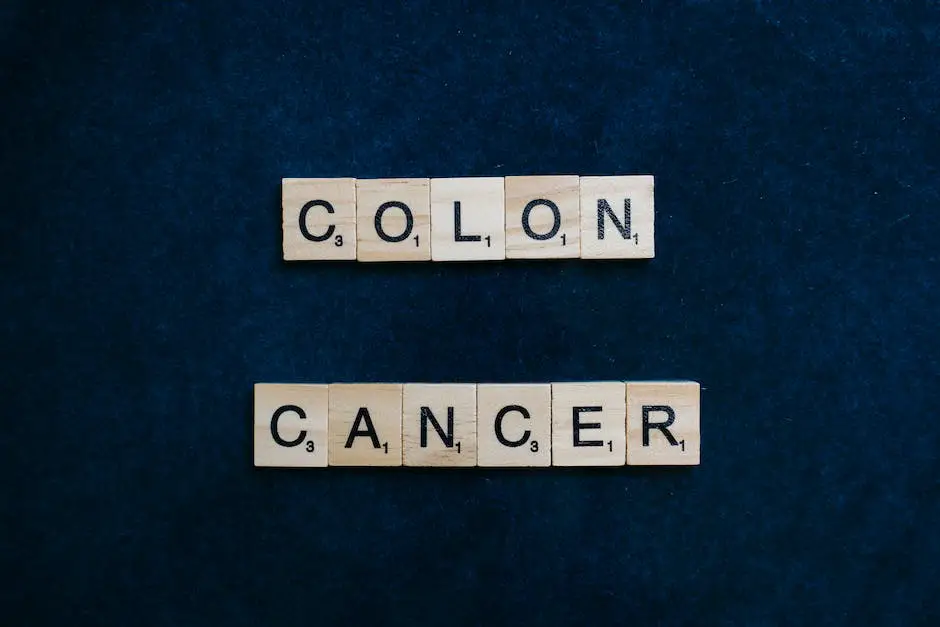
Symptoms of Colon Cancer
Towards a Deeper Understanding of Bowel Changes and Symptoms in Colon Cancer
Colon cancer, often referred to as colorectal cancer, triggers a range of symptoms that can serve as an early warning for underlying health issues. Diarrhea, constipation, or variations in the consistency of the stool are just some of the common symptoms linked with colon cancer. Importantly, these changes in bowel movements are not transient but are typically enduring, usually persisting for over four weeks.
Other subtle transformations in bowel movements, such as changes in regular commencement or smoothness of bowel movements, could act as potential red flags for colon cancer. It’s not unusual for colon cancer patients to report constipation, diarrhea, or thin stool that resembles narrow ribbons or pencils. Typically, these symptoms are the result of a tumor that inhibits or narrows the colon’s passage.
However, it’s pertinent to note that these symptoms do not always correspond to a diagnosis of colon cancer. Other conditions including Crohn’s disease, Irritable Bowel Syndrome (IBS), or ulcers, can give rise to similar bowel changes. Notwithstanding, it’s absolutely vital to report any such alterations in bowel movements to a healthcare professional so as to eliminate the possibility of colon cancer.
Bowel Changes: Blood in Stool and Discomfort
Bleeding in the lower digestive tract is another sign of colon cancer. The presence of blood can turn stool black or show a red streak in the stool. However, the blood may not always be visible to the naked eye and might only be detected through a fecal occult blood test, a procedure done in a doctor’s office.
In addition to changes in stool, individuals with colon cancer may also experience discomfort in their lower abdomen. This can present as cramping, gas, or pain. A feeling that the bowel does not empty completely is another possible symptom, often described as tenesmus. Again, these symptoms are non-specific and can occur in many other conditions, but they should never be ignored as they could be signs of an underlying colon cancer.
Additional Symptoms of Colon Cancer
Other symptoms of colon cancer, apart from bowel changes, could include unintentional weight loss, extreme fatigue, iron deficiency anemia, or a noticeable lump in the abdomen. As colon cancer advances, some individuals may experience shortness of breath, jaundice, or bone pain.
It is crucial to remember that exhibiting one or even several of these symptoms does not necessarily mean an individual has colon cancer. Many of these symptoms can be caused by other benign conditions. However, if these symptoms persist, it is essential to consult a doctor promptly. Early detection plays a crucial role in the success of colon cancer treatment.
Early Detection and Screening for Colon Cancer
Most colon cancers start as small and non-cancerous clumps of cells known as polyps. Over time, some of these polyps may become colon cancers. Regular screening can help identify and remove polyps before they become cancerous. Screening can also lead to early detection, which greatly improves the chances of successful treatment.
According to the American Cancer Society, adults aged 45 and older with an average risk of colon cancer should start regular screening. Those with an increased risk, such as a family history of colon or rectal cancer, should begin screening at an earlier age and might be screened more often. regular, a person should discuss their risk factors and screening options with their physician to ensure optimal preventative care.
When to Consult Healthcare Professionals About Bowel Changes in Colon Cancer
Experiencing significant alterations in bowel habits that persist over time is an important signal to seek professional medical advice. Even minor symptoms should not be overlooked, as an early discovery of the root cause greatly enhances the likelihood of a successful treatment. Hence, reaching out to a healthcare provider becomes imperative when you witness unexplained changes in your bowel habits or other observed symptoms tied to colon cancer. Starting a conversation about these uncomfortable bowel changes with healthcare experts can be a crucial step in potentially preventing colon cancer.
By educating yourself about these specific bowel changes associated with colon cancer, you can take a proactive role in managing your health, leading to timely detection and effective treatment of this potential fatal disease.
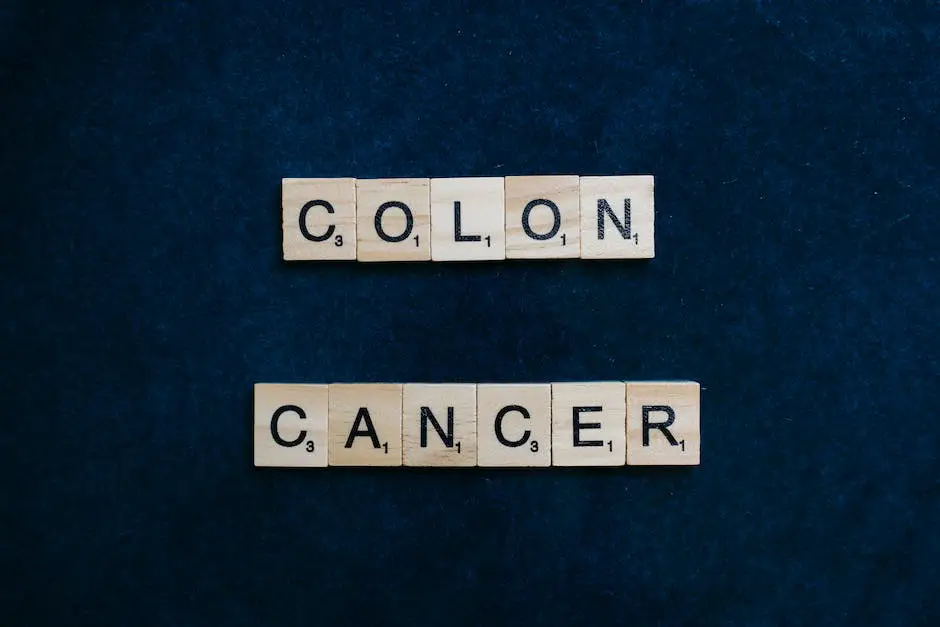
Bowel Changes as an Early Sign of Colon Cancer
Bowel Changes: A Potential Early Warning Sign of Colon Cancer
Colon cancer is of the most prevalent cancers globally, often presenting early indicators via alterations in bowel habits. These modifications in bowel function happen due to the presence of a tumor in the colon-rectal area, which interferes with the standard digestive operations. Increasing your cognizance about these bowel changes is paramount because it significantly boosts successful treatment possibilities and improves survival rates when the disease is caught in the early stages.
Identifying Bowel Changes
Bowel changes that may indicate colon cancer can vary in nature, predominantly manifesting as alterations in stool color, consistency, and frequency.
Change in Stool Color
Blood in stool is an alarming sign that shouldn’t be overlooked. In colon cancer, you might notice a dark red or even black stool, indicating the presence of blood. This occurs when a tumor, located in the colon or rectum, bleeds into the digestive tract. However, not all color changes indicate colon cancer. Certain medications and foods can also change the color of the stool.
Change in Stool Consistency
The consistency of stool may also change as a warning sign. Persistent diarrhea or constipation may indicate a blockage in the colon caused by a tumor. The stool may also become thin or stringy, a symptom appropriately known as ‘pencil stools’. This happens when a growth narrows the passage of the colon, altering the shape of the stool.
Change in Bowel Frequency
Changes in bowel habits include alterations in the frequency of bowel movements. If you notice an increased urgency to have a bowel movement or experience a persistent feeling of not being able to empty your bowel completely, it could be a symptom of colon cancer. Increased frequency or significant decrease in bowel movements can also be indicative.
Early Detection is Key
While changes in your bowel habits do not necessarily point towards colon cancer, such signs must not be overlooked. Other digestive conditions could cause similar symptoms, but the importance of early detection for colon cancer cannot be overstressed. Diagnosing colon cancer in its early stages significantly boosts the effectiveness of treatments and noticeably improves survival rates. Therefore, if you are persistently experiencing changes in your bowel habits, it is vital that you promptly consult with a healthcare professional. Regular screenings for people over 45, or those with a family history of the disease, play a significant role in the early detection and successful treatment of colon cancer.
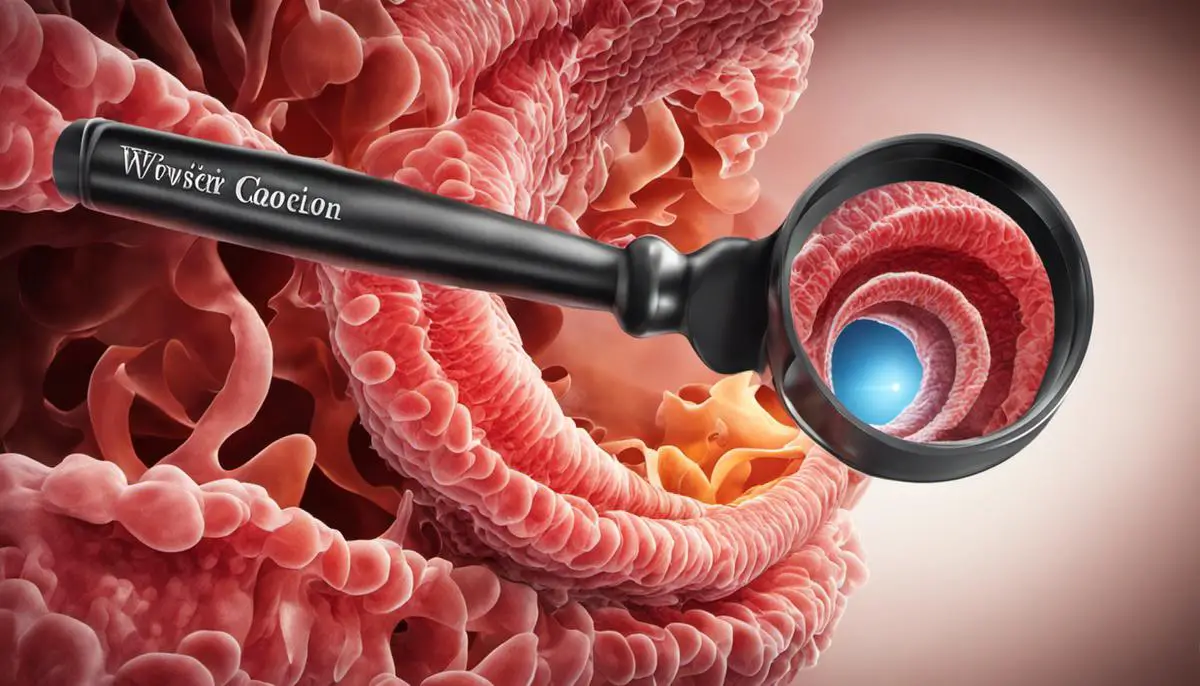
Medical Examinations and Diagnostic Tests
Identifying Bowel Changes Through Medical Testing
Colon cancer often causes noticeable shifts in bowel habits as it develops. These changes can be identified through several medical examinations and tests. These diagnostic procedures serve as essential tools in the early detection and successful treatment of colon cancer.
Colonoscopy: A Frontline Diagnostic Strategy
Perhaps the most common and effective test for detecting changes in the bowel due to colon cancer is a colonoscopy. This procedure involves a doctor inserting a long, flexible tube equipped with a tiny camera into the rectum to examine the entire colon. If any suspicious areas are found, the doctor can remove a small piece of tissue for a biopsy. This test is highly reliable and is currently the gold standard for colon cancer detection.
Sigmoidoscopy: An Alternative to Colonoscopy
While a colonoscopy examines the entire colon, a sigmoidoscopy explores only the lower part of the colon, known as the sigmoid colon and rectum. Like a colonoscopy, the process involves a small camera and may also allow for biopsy samples if necessary. Although less comprehensive in its scope, a sigmoidoscopy is less invasive and requires less preparation, making it a viable alternative for some patients.
Guaiac-Based Fecal Occult Blood Test (gFOBT)
If colon cancer is present, it often causes tiny amounts of blood to be present in stool. The gFOBT is designed to detect this hidden blood. It involves taking samples from three consecutive bowel movements, which are tested for the presence of blood. While this test is less invasive, it needs to be performed annually and can sometimes give false-positive results from certain foods or medications.
Fecal Immunochemical Test (FIT)
Similar to the gFOBT, the FIT also detects occult, or hidden, blood in stool. However, it uses antibodies to detect human hemoglobin protein, which reduces the chance of false positives from diet or non-human bleeding. It is also typically only requires one sample, unlike the gFOBT. The FIT is often recommended to be performed annually.
Stool DNA Test
A relatively new development in colon cancer detection, the stool DNA test looks for certain abnormal DNA and red blood cells that might be shed by cancer or polyps in the stool. Currently, one such test (Cologuard) looks for changes in DNA and blood. This test is more accurate than gFOBT and FIT, but it also has a higher chance of false positives and needs to be repeated every three years.
CT Colonography (Virtual Colonoscopy)
CT colonography, also known as a virtual colonoscopy, uses X-rays and computers to produce images of the entire colon. If any abnormalities are detected, a traditional colonoscopy may be needed to biopsy or remove the suspicious areas. This is an emerging field of testing and might not be covered by all insurance providers.
In the course of colon cancer detection tests, individuals may feel a certain degree of discomfort, ranging from mild to more significant based on the procedure utilized. Nonetheless, these tests are safe and highly beneficial in the early detection of potential colon cancer. Observing signs like changes in bowel habits or alterations in stool consistency is crucial in this detection process. If you notice such symptoms, it’s imperative to immediately consult a healthcare professional.
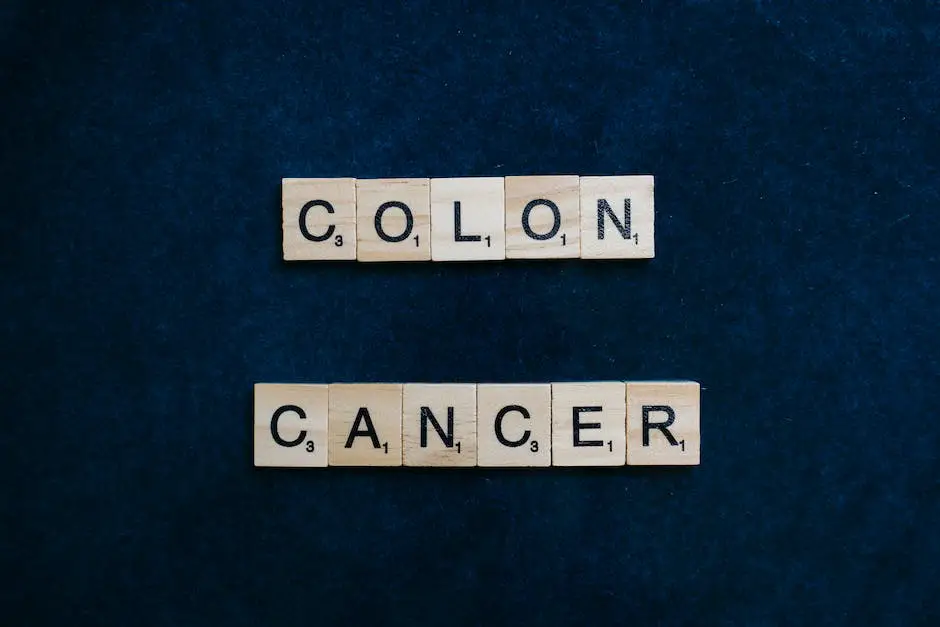
Prevention and Treatment of Colon Cancer
Understanding the Role of Bowel Changes in Colon Cancer Detection
The state of your bowel can significantly contribute to the early identification of colon cancer. Persistent alterations in bowel habits, such as ongoing diarrhea, constipation, or shifts in the texture of the stool, can serve as indicators of possible colon cancer. It’s also common to experience symptoms like rectal bleeding or the presence of dark-colored blood in the stool. Other signs can include feeling like your bowels are not completely empty after using the bathroom, as well as experiencing abdominal discomfort, pain, or bloating. It’s important to remember that these changes necessitate immediate medical attention and should never be ignored.
Prevention strategies against Colon Cancer
To lower the probability of getting colon cancer, lifestyle changes can make an enormous difference. This includes maintaining a balanced diet high in fruits, vegetables, and whole grains while limiting intake of red and processed meat. Regular exercise also plays a crucial role in disease prevention, and adults should aim to get at least 30 minutes of physical activity each day. Obesity is a significant risk factor for colon cancer, so maintaining a healthy weight is critical.
Limiting alcohol intake and avoiding tobacco are also key in preventing colon cancer. Heavy drinking and tobacco usage have both been linked to an increased risk of cancer in the colon and rectum. Regular screenings for colon cancer can also play an essential role in preventing the disease, as they can catch polyps before they develop into cancer.
Available Treatments for Colon Cancer
Treatment for colon cancer is generally determined based on the stage of the cancer, with the options including surgery, radiation therapy, and chemotherapy. Early-stage cancers can often be treated successfully with surgery, with minimally invasive techniques commonly used to remove polyps or segments of the colon.
Radiation therapy, which uses high-energy sources to kill cancer cells, can be used in conjunction with surgery or alone in treating colon cancer. Chemotherapy can be used after surgery to kill any remaining cancer cells, or it could be used before surgery to shrink larger tumors. Targeted drug therapy works by blocking specific genes and proteins that allow the cancer to grow.
Other new treatments such as immunotherapy have been showing promising results. These use the body’s immune system to fight the cancer cells. Clinical trials offer opportunities to try new therapies that are not yet widely available.
Role of Early Detection in Colon Cancer Treatment
Early detection has an essential role to play in the successful management and treatment of colon cancer. By identifying and removing polyps before they can develop into cancer, colonoscopies and other screening tests can prevent colon cancer.
When colon cancer is found early, it is highly treatable. Survival rates fall drastically, however, for colon cancer found at later stages. Thus, regular screenings, paying attention to bowel changes, and proactive medical consultation in the case of irregular symptoms are all crucial factors in achieving successful outcomes in the treatment of colon cancer.
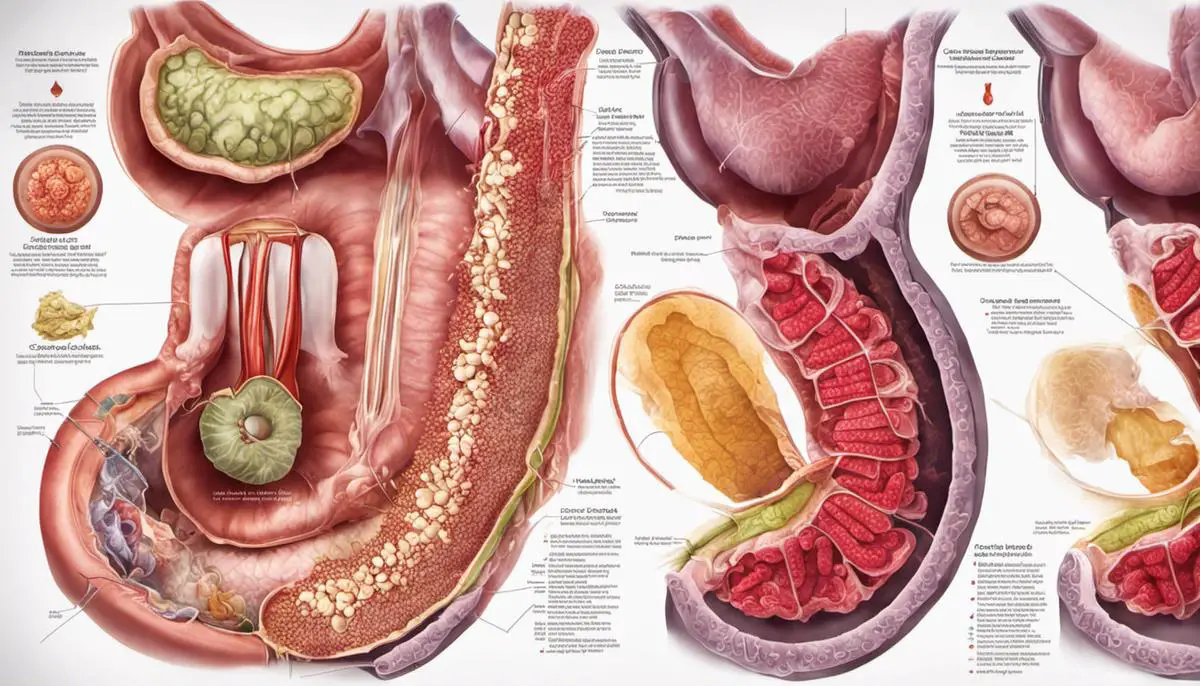
Bringing our discussion to a close, we can see how counteracting colon cancer involves a multifaceted approach that includes understanding the disease, acknowledging the role of bowel changes as early warning signs, proper diagnostic testing, and prevention and treatment strategies. Knowledge is indeed power, and knowing what to look out for, particularly concerning bowel changes, can help in early detection and increase the success rate of treatment protocols. We should remember that our health is in our hands, and staying informed about ailments like colon cancer could be the first crucial step towards prevention and effective management.
